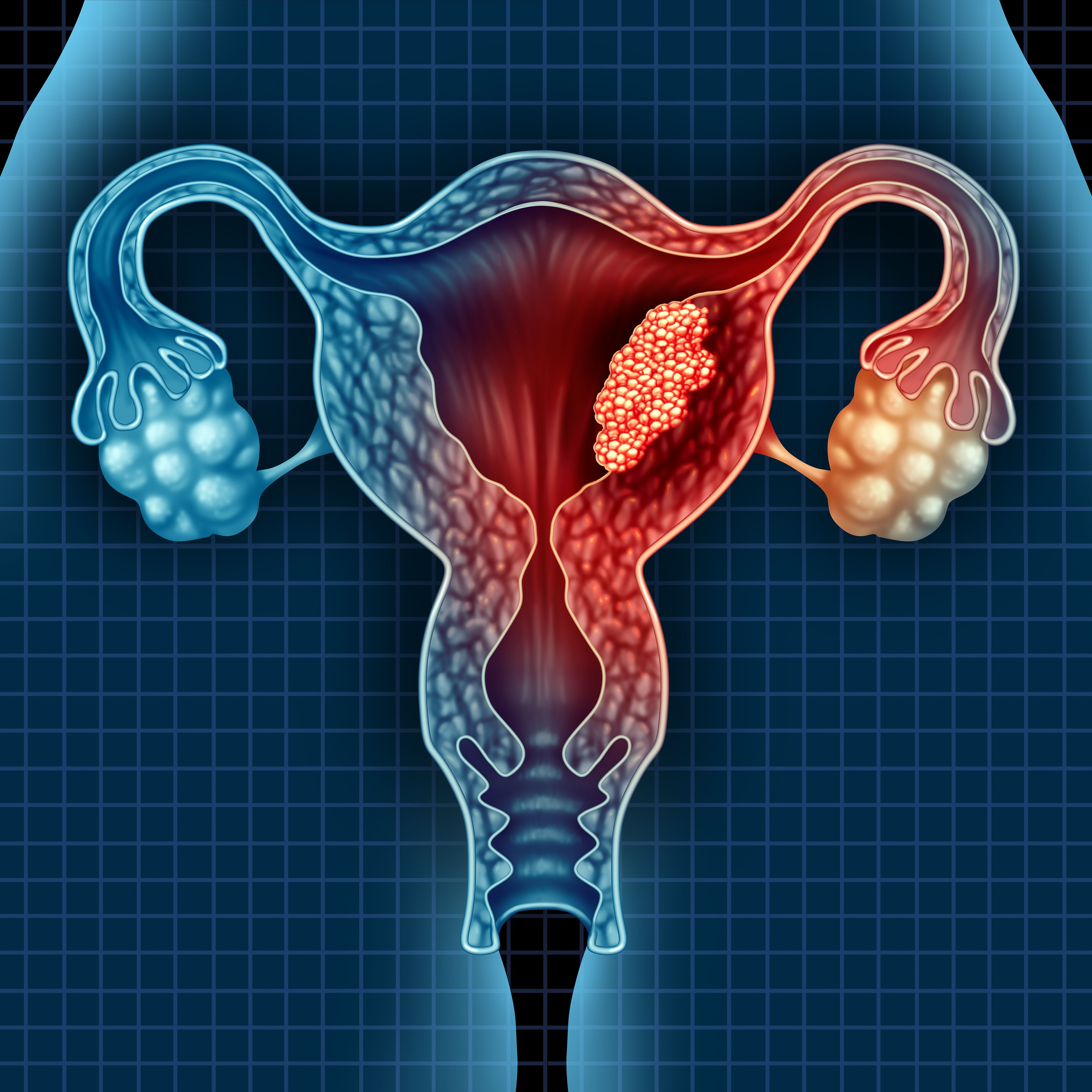Pembro/Lenvatinib Effective in Endometrial Cancer, Regardless of Mutations
The combination of pembrolizumab and lenvatinib appears to be effective in for the treatment of patients with endometrial cancer, regardless of biomarker status.
Endometrial cancer: ©freshidea - stock.adobe.com

Findings from an analysis of the Study 111/KEYNOTE-146 study (NCT02501096) identified that lenvatinib (Lenvima) plus pembrolizumab (Keytruda) was an efficacious combination for patients with previously treated endometrial carcinoma, eliciting responses and prolonging survival regardless of patients’ biomarker statuses.1
This analysis of KEYNOTE-146 evaluated 124 patients with advanced endometrial carcinoma who were treated before the data cutoff of August 18, 2020. In the RNA-sequencing evaluable population (n = 93), the overall response rate (ORR) was 40.9%, and the median progression-free survival (PFS) was 7.4 months. Of the 79 patients evaluable for whole-exome sequencing, the ORR was 77% (10/13) in patients with a tumor mutational burden (TMB) of 175 or fewer mutations per exome and 33% (22/66) in patients with a TMB of 175 or greater mutations per exome.
There were no significant associations between RNA-sequencing signature scores and ORR or PFS. Moreover, there were no associations between T cell-inflamed gene expression profile and TMB or microvessel density (MVD), or between TMB and MVD. Regardless of TMB and mutational status, patients still responded to the combination.
“Taken together, studies have been unable to identify putative biomarkers associated with benefit from lenvatinib plus pembrolizumab in patients with endometrial carcinoma. Results do not support clinical utility of the evaluated biomarkers, although further investigation of biomarkers for this regimen is warranted,” study authors wrote in findings published in The Journal for ImmunoTherapy of Cancer.
In these exploratory analyses, patients with histologically confirmed metastatic endometrial carcinoma were enrolled and treated with oral lenvatinib 20 mg once a day along with intravenous pembrolizumab 200 mg every 3 weeks for 35 cycles. All patints had an archived formalin-fixed paraffin-embedded tissue obtained from them.
The findings from this analysis were consistent with those from 80 patients with metastatic renal cell carcinoma who were also evaluated as part of the KEYNOTE-146 study.
“To our knowledge, this is the largest analysis in any cancer type that explored whether an association exists between clinical outcomes and gene expression signature scores in patients treated with the combination of lenvatinib plus pembrolizumab,” study authors wrote.
About KEYNOTE-146
KEYNOTE-146 was a phase 1b/2 trial of lenvatinib plus pembrolizumab in solid tumors.2 The primary end points in phase 1b were to determine the maximum tolerated dose and recommended phase 2 dose of lenvatinib and number of patients with dose-limiting toxicities. The primary end point of phase 2 was ORR. Secondary end points included incidence of treatment-emergent adverse events, PFS, overall survival, disease control rate, duration of response, and clinical benefit rate.
Patients with non–small cell lung cancer, renal cell carcinoma, endometrial cancer, urothelial carcinoma, head and neck squamous cell carcinoma, melanoma, or leiomyosarcoma were eligible for enrollment. Patients were required to have a life expectancy of at least 12 weeks, an ECOG performance status of 0-1, and adequate blood pressure, bone marrow function, renal function, liver function, and blood coagulation function.
REFERENCES:
1. Makker V, Taylor MH, Aghajanian C, et al. Evaluation of potential biomarkers for lenvatinib plus pembrolizumab among patients with advanced endometrial cancer: results from Study 111/KEYNOTE-146. J Immunother Cancer. 2024;12(1):e007929. Published 2024 Jan 19. doi:10.1136/jitc-2023-007929
2. A trial of lenvatinib (E7080) plus pembrolizumab in participants with selected solid tumors. ClinicalTrials.gov. Updated July 20, 2023. Accessed January 24, 2024. https://clinicaltrials.gov/study/NCT02501096
FDA Accepts sBLA of Dostarlimab/Chemo to Include All Advanced Endometrial Cancer
April 24th 2024The FDA accepted the supplemental biologics license for dostarlimab plus standard-of-care chemotherapy for all patients with primary advanced or recurrent endometrial cancer and set a Prescription Drug User Fee Act action date of August 23, 2024.
Read More